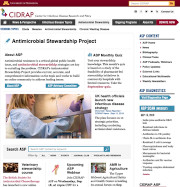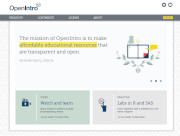
ATE PI Conference 2019
www.aacc.nche.edu/programs/advanced-technological-education/ate-conference-2019/
This year's ATE PI Conference is fast approaching! Centered on the theme Innovation and Impact: ATE for the Future, the event will highlight the significant role that ATE projects and centers play in creating and implementing successful and impactful career pathways resulting in a highly skilled U.S. workforce. For more information you can visit the American Association of Community Colleges (AACC)'s ATE PI Conference pages – AACC is funded by NSF to hold this annual event and it's always a highlight of the year for the ATE community.
Sessions are focused on demonstrating "how the ATE community has successfully broadened impact through partnerships and collaboration with key stakeholders." These events will range in format, including forums, demonstrations, discussion sessions, breakfast roundtables, high impact practice workshops, and synergy meetings.
In addition, conference events may address evidence-based project or center impact in one of the six session track topic areas, multi-discipline-relevant learning experiences and strategies, interactive learning activities with take-away resources, and collaborative efforts among multiple ATE centers or projects. A preliminary schedule is available here.
The showcase sessions are another highlight of the PI conference, providing projects and centers with the opportunity to share and display their work, in addition to learning about what others in the community are doing. These showcases also offer a great opportunity for ATE members to connect with NSF program officers. Showcases will take place in two sessions, on Wednesday, October 23 and Thursday October 24.
Want to learn more about how you can prep for the conference? Check out our Community Connection section below.
We look forward to seeing you in D.C. later this month!







